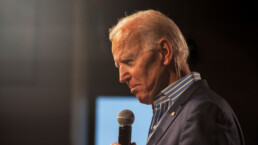There are many good reasons to be unhappy with the economy today: by conventional social democratic metrics like union density, welfare generosity, and public ownership levels, the economy is not in good shape, and recent trends have been mixed at best.
by Matt Bruenig, Jacobin
I have been closely monitoring the recent discourse on the goodness of the economy, and I think I’ve fully mapped it out and understand why it keeps breaking down. What is being presented as an argument about one question is actually an argument about three different questions:
- Is the economy good?
- Did Joe Biden do a good job with the economy given political constraints?
- Why do people say the economy is bad when asked by survey takers?
Each of these questions is interesting when analyzed separately. But when you mush them together without realizing you are doing that, you end up in a rhetorical quagmire that causes frustration and confusion.

My interest in the debate is mostly on question number one, i.e. whether the economy is good. When I was introduced to this discourse, this seemed to be what people were arguing about, with the consensus sentiment from liberal thought-leaders being that the economy is not only good, but is extremely good, and that any viewpoint to the contrary is bad faith, borderline insane, or factually bankrupt.
I found this peculiar, because whether the economy is good or bad is, at minimum, a highly contestable question that turns as much on your ideological views about what makes an economy good as it does on various factual indicators.
Recent Posts
Feeding The Warfare State
July 1, 2025
Take Action Now We Lose, the Weapons Makers WinBy William D. Hartung, Tom Dispatch The Senate is on the verge of passing the distinctly misnamed…
The Rage Of Billionaires And The Frenzy To Stop Zohran Mamdani From Becoming New York’s Mayor
June 30, 2025
Take Action Now The constellation of forces now regrouping with a vengeance includes titans of Wall Street, enormous real estate interests,…
It’s Not Just The Cities. Extreme Heat Is A Growing Threat To Rural America.
June 28, 2025
Take Action Now The urban heat island sits in a rural heat ocean.By Umair Irfan, Vox Summer has officially begun with a blast of scorching…
Mamdani’s Massive Victory Should Show Democrats Where The Party’s Future Lies
June 27, 2025
Take Action Now NYC mayoral candidate Zohran Mamdani has thrown the drowning Democratic Party a life vest. Will its leaders use it?By Sam…




